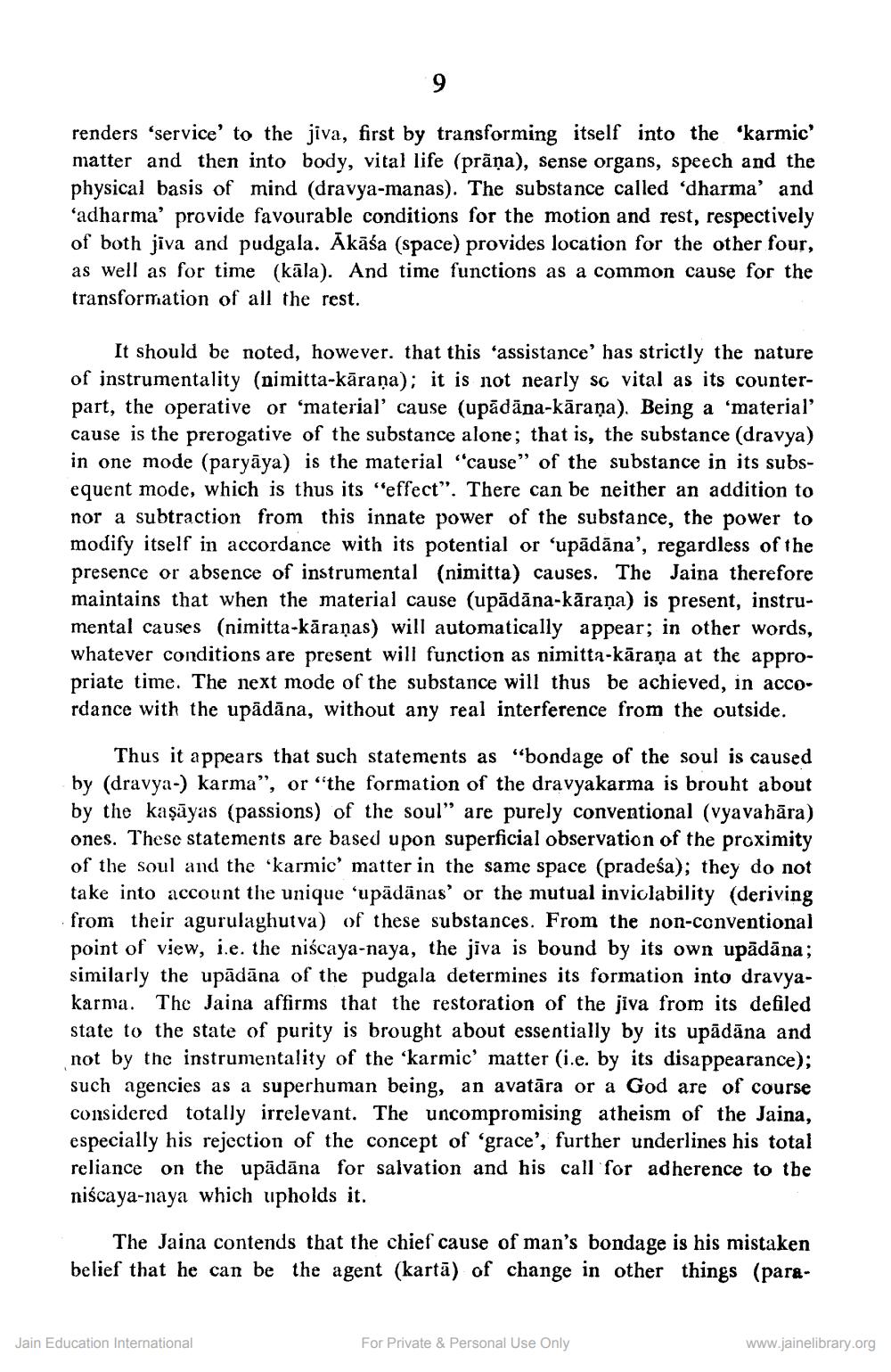________________
renders 'service to the jiva, first by transforming itself into the karmic' matter and then into body, vital life (prāņa), sense organs, speech and the physical basis of mind (dravya-manas). The substance called 'dharma' and ‘adharma' provide favourable conditions for the motion and rest, respectively of both jiva and pudgala. Akāśa (space) provides location for the other four, as well as for time (kāla). And time functions as a common cause for the transformation of all the rest.
It should be noted, however, that this 'assistance' has strictly the nature of instrumentality (nimitta-kāraņa); it is not nearly so vital as its counterpart, the operative or ‘material' cause (upādāna-kāraṇa). Being a 'material' cause is the prerogative of the substance alone; that is, the substance (dravya) in one mode (paryāya) is the material "cause” of the substance in its subsequent mode, which is thus its "effect". There can be neither an addition to nor a subtraction from this innate power of the substance, the power to modify itself in accordance with its potential or 'upādāna', regardless of the presence or absence of instrumental (nimitta) causes. The Jaina therefore maintains that when the material cause (upādāna-kāraṇa) is present, instrumental causes (nimitta-kāranas) will automatically appear; in other words, whatever conditions are present will function as nimitta-kāraņa at the appropriate time. The next mode of the substance will thus be achieved, in accordance with the upādāna, without any real interference from the outside.
Thus it appears that such statements as "bondage of the soul is caused by (dravya-) karma", or "the formation of the dra vyakarma is brouht about by the kaşāyas (passions) of the soul" are purely conventional (vyavahāra) ones. These statements are based upon superficial observation of the proximity of the soul and the 'karmic matter in the same space (pradeśa); they do not take into account the unique 'upādānas' or the mutual inviolability (deriving from their agurulaghutva) of these substances. From the non-conventional point of view, i.e. the niscaya-naya, the jiva is bound by its own upādāna; similarly the upādāna of the pudgala determines its formation in karma. The Jaina affirms that the restoration of the jiva from its defiled state to the state of purity is brought about essentially by its upādāna and not by the instrumentality of the karmic matter (i.e. by its disappearance); such agencies as a superhuman being, an avatāra or a God are of course considered totally irrelevant. The uncompromising atheism of the Jaina, especially his rejection of the concept of 'grace', further underlines his total reliance on the upādāna for salvation and his call for adherence to the niscaya-naya which upholds it.
The Jaina contends that the chief cause of man's bondage is his mistaken belief that he can be the agent (kartā) of change in other things (para
Jain Education International
For Private & Personal Use Only
www.jainelibrary.org




